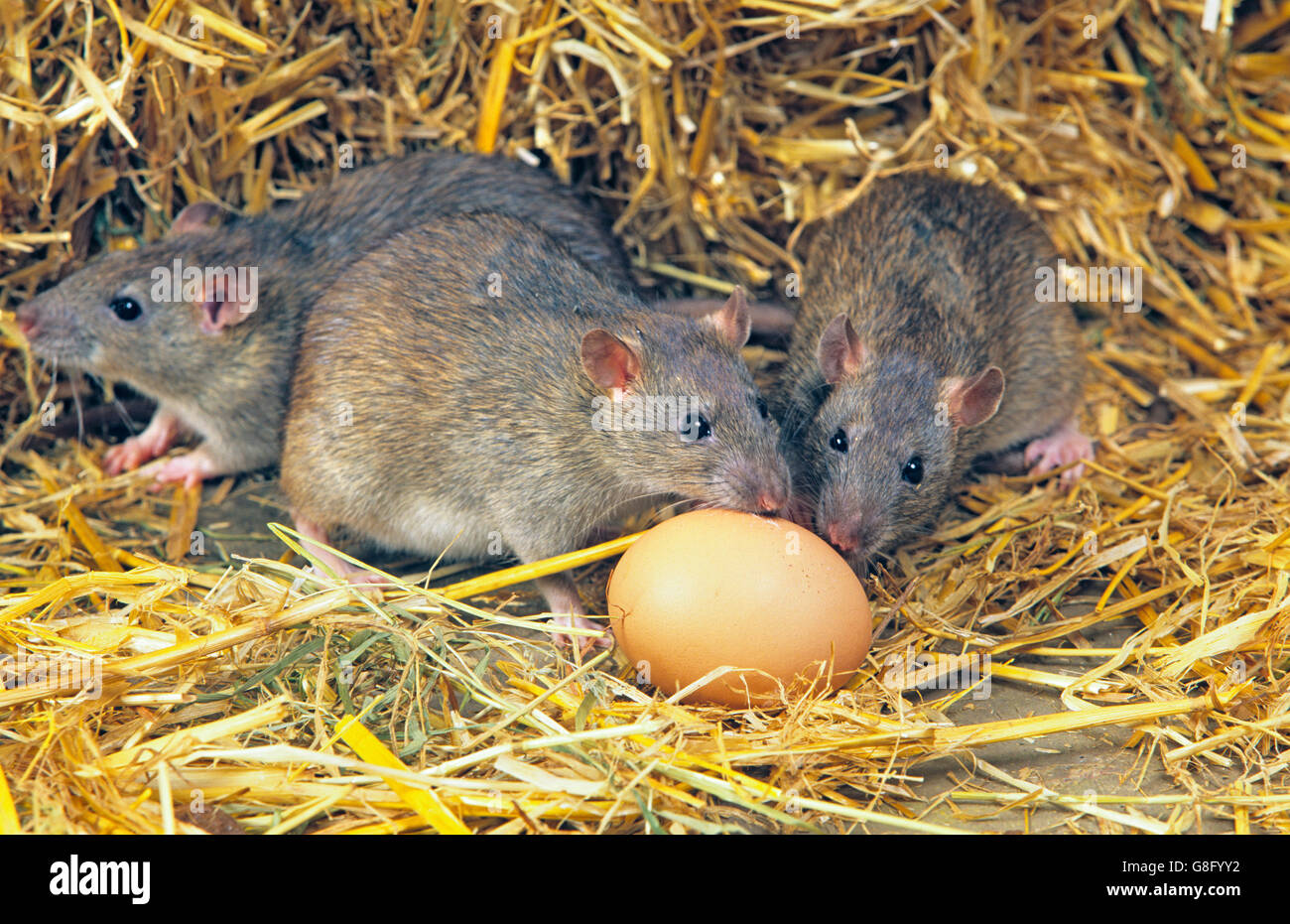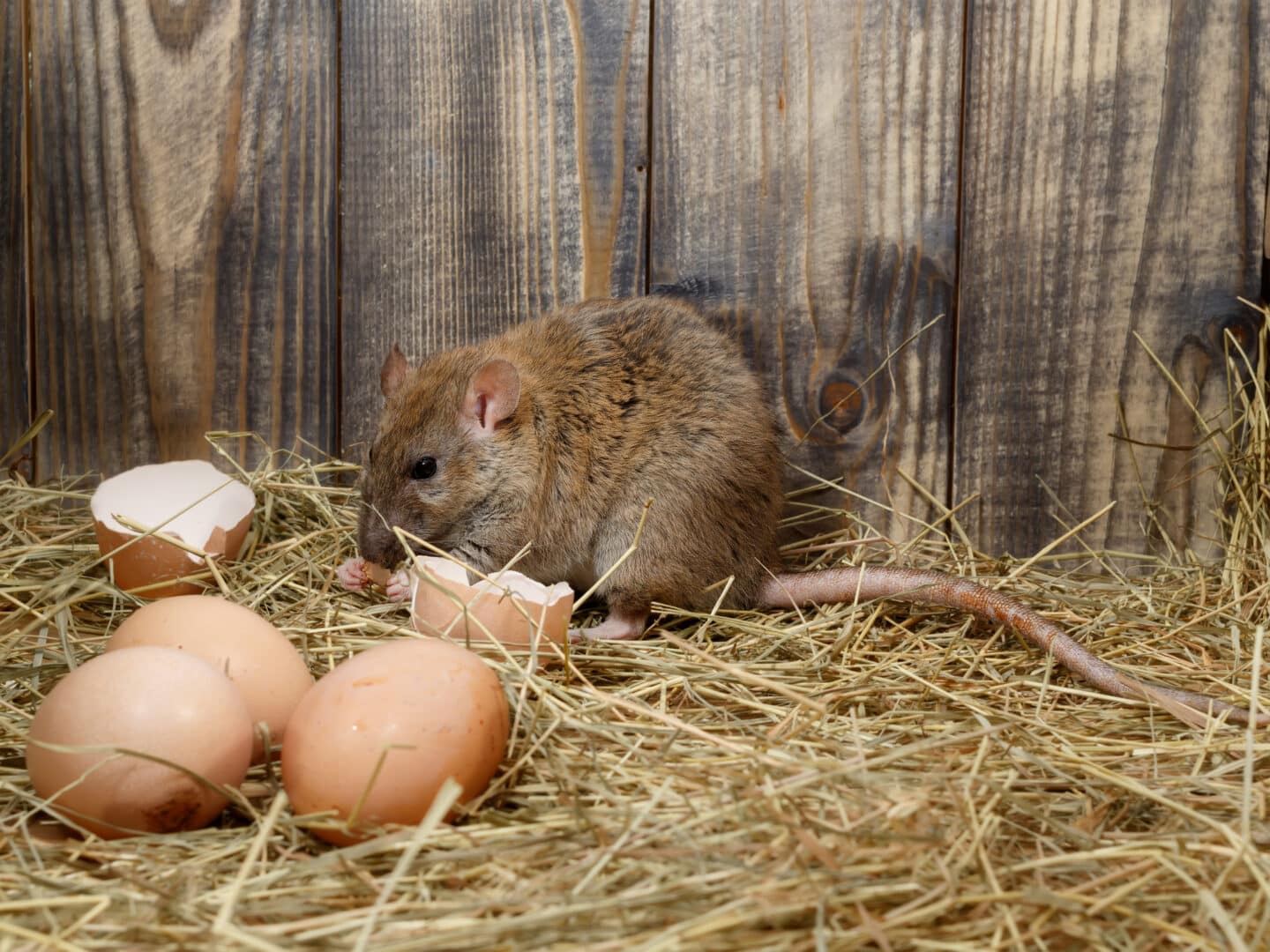Yes, rats definitely eat chicken eggs. Rats are opportunistic predators that will target unguarded eggs in chicken coops. They use their sharp teeth to crack the eggshell open and consume the nutritious contents inside (both the albumen and yolk). While rats cannot digest eggshells and don’t typically eat them, they’re very interested in the protein-rich contents within.
How Rats Access and Consume Eggs
Rats employ several methods when targeting chicken eggs
- They typically create holes in the eggshell using their teeth
- They use their tongues to lick up and consume the egg’s contents
- While rats rarely carry eggs away intact, they might drag or roll an egg to a safer location
- Larger rats can move eggs more effectively than smaller ones or mice
Signs Rats Are Stealing Your Eggs
If you suspect rats are targeting your chicken eggs look for these telltale signs
- Empty eggshells with sizable holes
- Eggshells with ragged edges
- Eggs moved from their original nesting location
- Rat droppings and urine in the coop
- Greasy rub marks along common pathways
- Gnaw marks on wooden structures
It’s important to note that eggs aren’t usually a rat’s primary target. They typically enter coops seeking chicken feed first, and only turn to eggs if other food sources are unavailable or difficult to access.
How to Stop Rats from Eating Chicken Eggs
1. Elevate the Nests
Installing nesting boxes on smooth metal stands can make it harder for rats to climb and reach the eggs. Chickens can easily jump to moderate heights to reach their nests, while rats will have more difficulty.
2. Create Effective Barriers
Installing wire mesh with small holes around your coop is essential. The mesh should:
- Cover the coop’s base to prevent rats from digging underground tunnels
- Have holes small enough that even baby rats can’t get through
- Be made of sturdy material rats can’t chew through
Remember to check for and seal any holes in the coop walls as well.
3. Clean the Coop Regularly
Regular cleaning is crucial for keeping rats away:
- Remove any spilled chicken feed thoroughly
- Change soiled bedding frequently
- Eliminate water sources rats could drink from
- Keep the area around the coop clear of debris and tall grass
4. Store Feed Properly
Rats are primarily attracted to chicken feed rather than eggs:
- Store feed in rodent-proof metal containers with tight lids
- Keep feed storage away from the coop if possible
- Clean up spilled feed immediately
5. Collect Eggs Frequently
Don’t leave eggs unattended for long periods:
- Collect eggs daily, or even twice daily
- This significantly reduces predation opportunities
6. Eliminate the Rat Population
If you already have rats in your coop:
- Use appropriate traps (covered snap traps can be effective and humane)
- Consider bait stations if necessary
- Remove hiding spots around the coop
- Consult professional pest control if the infestation is severe
Why You Should Address a Rat Problem Quickly
Rats pose several serious threats to your chicken operation:
- They steal and consume eggs, reducing your yield
- They can attack and kill young chicks
- They spread diseases that can affect your flock
- Their presence stresses chickens, potentially reducing egg production
- They can cause structural damage to your coop
Can Rats Die from Eating Chicken Eggs?
Despite some claims, there’s no evidence that chicken eggs are toxic to rats. While eggs contain some compounds that might be harmful in large quantities, rats won’t likely be poisoned by consuming eggs. Instead of hoping eggs will naturally eliminate rats, take proactive measures to protect your coop.
Rats do eat chicken eggs, but with proper prevention and management strategies, you can effectively protect your flock’s eggs. Regular cleaning, proper feed storage, frequent egg collection, and structural improvements to your coop are all essential components of rat prevention. By implementing these measures, you’ll create a safer environment for your chickens and preserve your egg production.
Remember, prevention is always easier than dealing with an established rat infestation. Taking proactive steps now will save you headaches (and eggs!) later.

Problems with Rats Infesting Your Urban Chicken Coop
- Break and eat eggs and sometimes devour young chicks. They will also eat the poultry food or contaminate it with urine or feces.
- Spread diseases like Avian Flu, fowl cholera, and leptospirosis that can kill the chicken flock and even harm humans. In addition, they can transmit mites, lice, and viruses that can impact the health of the flock.
- Damage to the coop. Rats chew and gnaw constantly so they can destroy the structural integrity of the coop, compromising wires, rubber, plastic, and even temperature control units. They can be a costly “visitor”.
- Damage to the flock. They stress the flock and can create reduced laying capacity.

So, how do you keep rats from infesting your urban chicken coop?
Good coop location and maintenance
Build coops away from other structures, particularly your home (to reduce the chances of an opportunistic rat raiding your house). Clean the coop regularly – dispose of dead birds in vermin-proof containers, clear out spilled feed & broken eggs, and change bedding frequently. Around the coop, make sure that vegetation is cut back as rats love the cover that is provided and will use it to scurry close. As you maintain your coop, inspect for rodent presence. Do you see rat droppings? Evidence of material being moved? Greasy tail marks or pawprints? Take action if you believe you have rodents.
What is stealing chicken eggs?
FAQ
Do rats eat chickens?
Besides being disease-carrying rodents, rats also pose a danger to the chicks and could harm them, given a chance. Rats also lead to significant food contamination if they do not manage to eat all the chicken feed. They do so by leaving their droppings in feed troughs and water containers. When Are You Most Likely to Find Rats?
How do you know if a Chicken eats a rat?
Droppings: Rat droppings look like small, brown grains of rice, so they are usually easy to notice and identify. Reduced Eggs: a sudden drop in the number of eggs you collect from your chickens could be due to the rats. Chickens will lay fewer eggs when their stress level is elevated, and the eggs they do lay can be eaten by rats.
Do wild rodents eat chicken eggs?
Wild rodents, such as rats, are capable of moving chicken eggs but do not carry them since they need all four limbs to move. They attack chicken eggs more often than indoor rats and mice when they are desperate or starved.
Do rats eat eggs?
Rats are omnivores and can eat eggs. They can survive on both plant and animal food sources, including produce from the animal.
How to prevent rats from eating chicken eggs?
To prevent rats from eating chicken eggs, remove excess chicken feed that attracts rodents, pick all the laid eggs and store them separately, and ensure there is no excess water in the coop for rats to drink. One additional method is elevating the nets.
Can rats and mice eat laying hens?
The presence of rats and mice in a coop with a laying hen can stress the chickens and result in poor results and reduced egg production. Rats have hard and razor-sharp teeth that they use to break eggshells. They use their tongue to leak on the egg’s contents after it is broken.
How do I keep rats from eating my chicken eggs?
Will a rat eat a whole chicken egg?
Hi Martin I am a professional pest controller and yes rats will take eggs whole without breaking them even if there is another food source. The only way to sort this is to set traps or poison.
What animal could be eating my chicken eggs?
Rats mostly target prey their size, namely young chicks and eggs. They take their prey whole and will leave little evidence of their attack. Signs of rat activity in the hen house include large, mouse-like droppings and tracks with a tail trail.
Do rats steal chicken eggs?
Rats can kill chickens, particularly chicks or injured birds, as they are opportunistic predators. They also pose indirect threats by stealing eggs, contaminating feed, spreading diseases like salmonella, and damaging coops.
